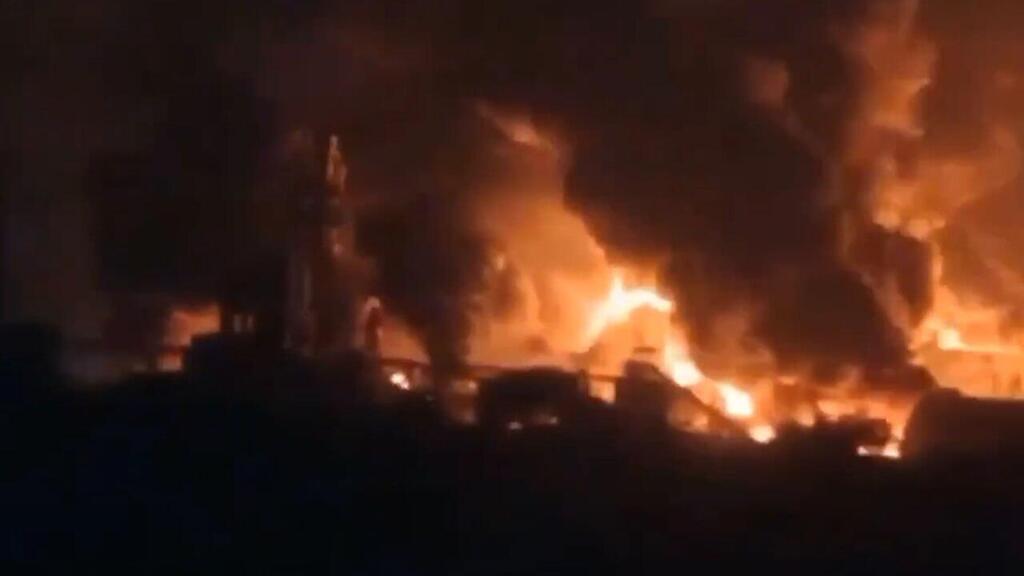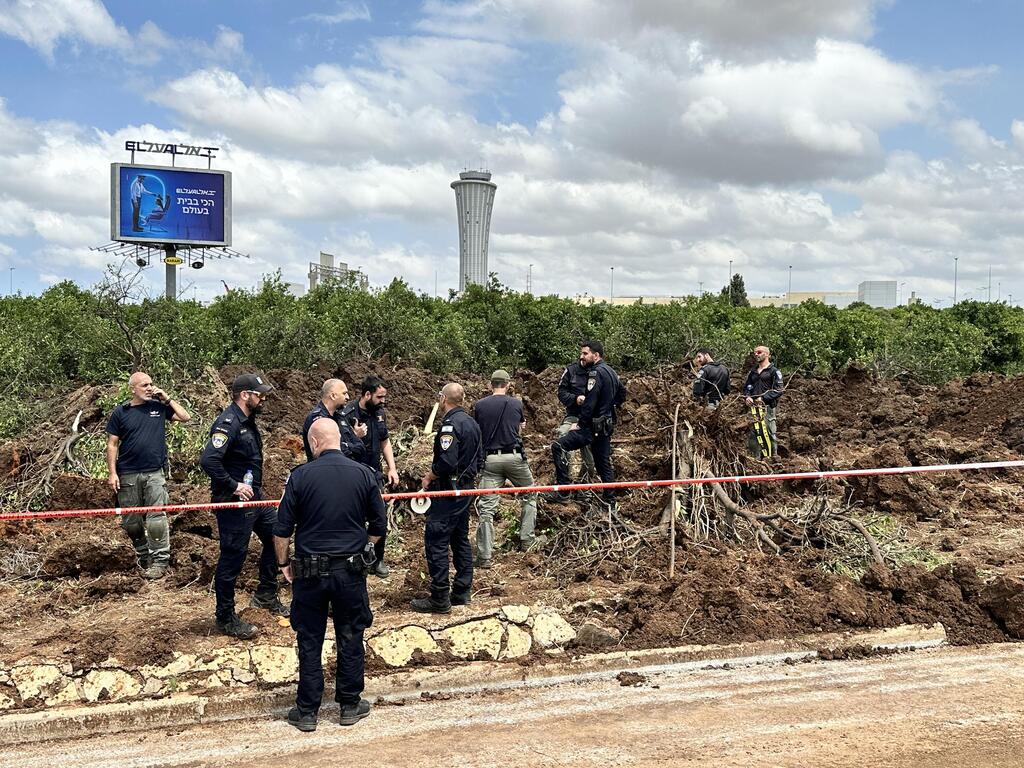Israel launched airstrikes in Yemen late Sunday, targeting Houthi infrastructure in coordination with the United States, a day after a missile fired from Yemen exploded near Ben Gurion Airport, injuring five people.
The Israeli operation, dubbed "Port City," struck the port of Hudaydah and a cement factory used for weapons production, according to Israeli security officials. The strike marked a significant escalation following weeks of Houthi missile and drone attacks, which had previously failed to land inside Israeli territory.
“A total of 50 munitions were dropped. We destroyed Hudaydah Port and facilities used to manufacture arms,” a senior Israeli official said. “This was a very powerful strike—and it will not be the last. The era of restraint is over.”
According to the Israel Defense Forces, fighter jets targeted terror infrastructure belonging to the Houthi regime along the Yemeni coast, roughly 2,000 kilometers from Israeli territory. The IDF said the strikes were in response to repeated Houthi rocket and drone attacks on Israel and its civilians.
The military said the Hudaydah port serves as a central source of revenue for the Houthis and a conduit for Iranian weapons, military supplies and equipment used for terrorism. The Bajil cement factory east of Hudaydah was also targeted; according to the IDF, the plant supports the Houthis’ military infrastructure, including tunnel-building efforts, and its destruction dealt a blow to the group’s economic and military capabilities.
The IDF also blamed Iran for directing and financing Houthi aggression over the past year and a half, saying the group's actions have endangered Israel, destabilized the region and disrupted global maritime routes. “The IDF is determined to continue forcefully striking any threat to Israeli civilians—at any distance,” the statement read.
The airstrikes coincided with U.S. attacks on Houthi targets in Yemen’s capital, Sana’a, and elsewhere. Saudi-owned Al-Hadath television reported that more than 30 Israeli aircraft participated in the strikes, which hit at least nine Houthi sites, including the Bajil cement plant, where casualties were reported.
Prime Minister Benjamin Netanyahu, in a video posted on social media, said he was en route to the military headquarters in Tel Aviv but did not elaborate on the situation. “We have acted before and will act again,” he said. “This is not a one-time strike. There will be more.”
The Houthis responded defiantly, with senior official Mohammed al-Bukhaiti warning of further escalation and threatening to impose an aerial blockade on Israel. “The latest attack on Ben Gurion was a warning,” he said, claiming that their missile capabilities remained intact and hidden.
The political bureau of the Houthis told Qatar-based Al-Araby television that Israel targeted economic rather than military sites “because it could not reach the military ones.” They accused Israel and the United States of trying to provoke internal unrest in Yemen.
The explosion at Ben Gurion Airport marked a turning point in Israel’s response strategy. Although more than two dozen Houthi projectiles had been launched toward Israel in recent weeks, Sunday’s incident was the first to cause injuries and land directly on Israeli soil, prompting the cancellation of multiple flights by foreign airlines.
Until now, Israel had largely refrained from retaliating directly, deferring to U.S. military operations and responding to a reported request from Washington to allow the U.S. to handle the Houthi threat independently.
Get the Ynetnews app on your smartphone: Google Play: https://bit.ly/4eJ37pE | Apple App Store: https://bit.ly/3ZL7iNv
Israel’s last major strike in Yemen occurred in December, during a televised speech by Houthi leader Abdul-Malik al-Houthi. That operation targeted Sana’a airport, knocking its control tower out of service, as well as Hudaydah port and a power station. The IDF used about 25 aircraft in the mission and coordinated in advance with the United States.
Since March 15, the Trump administration has intensified airstrikes against Houthi targets, launching more attacks in six weeks than the Biden administration did over 13 months. According to U.S. Central Command, over 800 Houthi sites have been targeted, and missile and drone attacks have decreased significantly. Still, the primary goal of halting Houthi attacks on Israel and shipping in the Red Sea remains unmet.
First published: 19:41, 05.05.25





